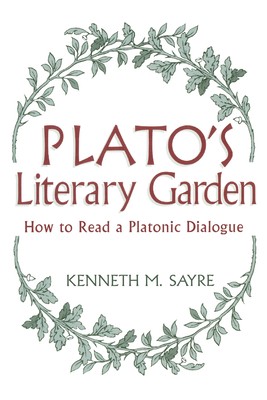
- We will send in 10–14 business days.
- Author: Kenneth M Sayre
- Publisher: University of Notre Dame Press
- ISBN-10: 0268038767
- ISBN-13: 9780268038762
- Format: 15.4 x 22.8 x 2.4 cm, minkšti viršeliai
- Language: English
- SAVE -10% with code: EXTRA
Reviews
Description
Plato's dialogues are universally acknowledged as standing among the masterworks of the Western philosophic tradition. What most readers do not know, however, is that Plato also authored a public letter in which he unequivocally denies ever having written a work of philosophy. If Plato did not view his written dialogues as works of philosophy, how did he conceive them, and how should readers view them? In Plato's Literary Garden, Kenneth M. Sayre brings over thirty years of Platonic scholarship to bear on these questions, arguing that Plato did not intend the dialogues to serve as repositories of philosophic doctrine, but instead composed them as teaching instruments.
EXTRA 10 % discount with code: EXTRA
The promotion ends in 23d.07:40:01
The discount code is valid when purchasing from 10 €. Discounts do not stack.
- Author: Kenneth M Sayre
- Publisher: University of Notre Dame Press
- ISBN-10: 0268038767
- ISBN-13: 9780268038762
- Format: 15.4 x 22.8 x 2.4 cm, minkšti viršeliai
- Language: English English
Plato's dialogues are universally acknowledged as standing among the masterworks of the Western philosophic tradition. What most readers do not know, however, is that Plato also authored a public letter in which he unequivocally denies ever having written a work of philosophy. If Plato did not view his written dialogues as works of philosophy, how did he conceive them, and how should readers view them? In Plato's Literary Garden, Kenneth M. Sayre brings over thirty years of Platonic scholarship to bear on these questions, arguing that Plato did not intend the dialogues to serve as repositories of philosophic doctrine, but instead composed them as teaching instruments.


Reviews